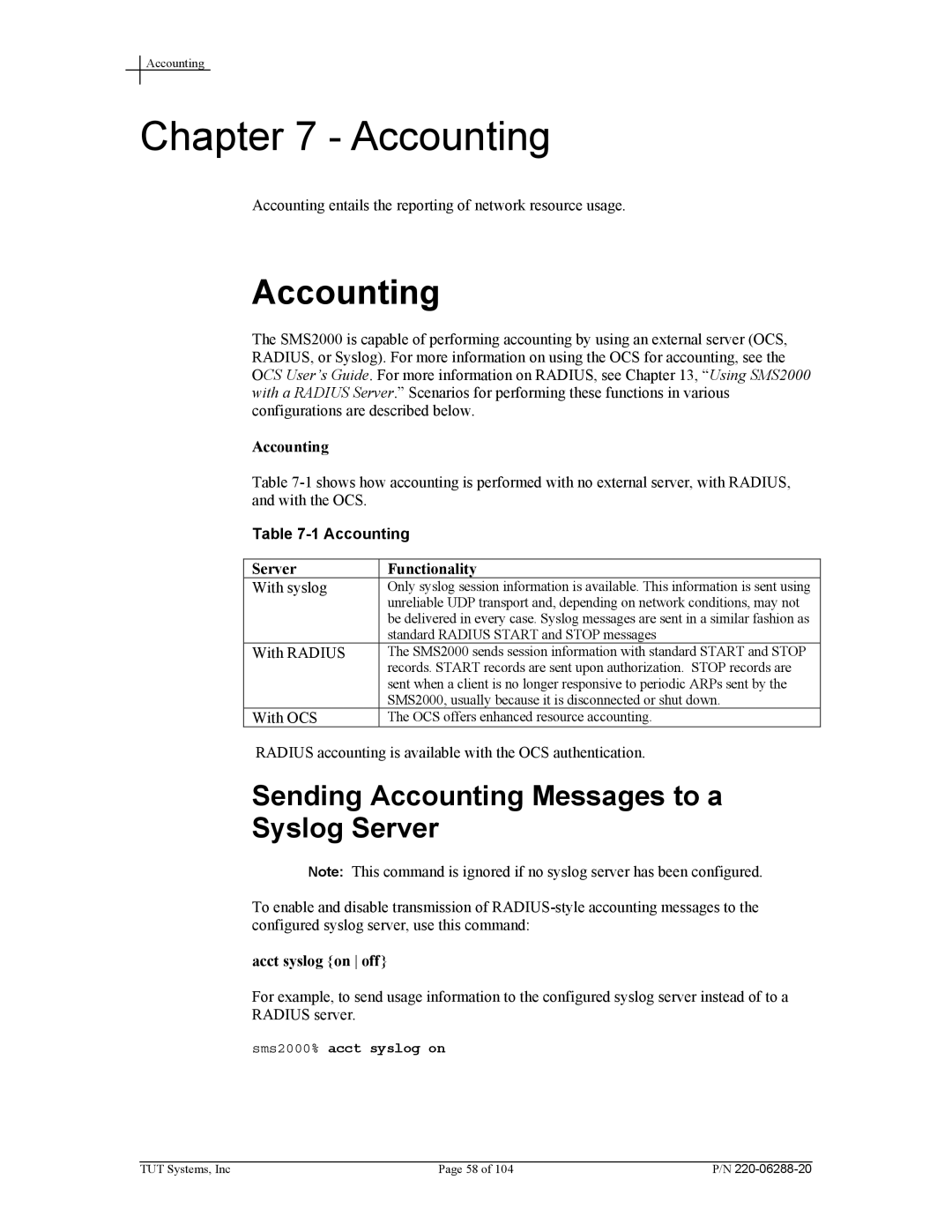
Accounting
Chapter 7 - Accounting
Accounting entails the reporting of network resource usage.
Accounting
The SMS2000 is capable of performing accounting by using an external server (OCS, RADIUS, or Syslog). For more information on using the OCS for accounting, see the OCS User’s Guide. For more information on RADIUS, see Chapter 13, “Using SMS2000 with a RADIUS Server.” Scenarios for performing these functions in various configurations are described below.
Accounting
Table
Table 7-1 Accounting
Server
With syslog
With RADIUS
With OCS
RADIUS accounting is available with the OCS authentication.
Sending Accounting Messages to a
Syslog Server
Note: This command is ignored if no syslog server has been configured.
To enable and disable transmission of
acct syslog {on off}
For example, to send usage information to the configured syslog server instead of to a RADIUS server.
sms2000% acct syslog on
TUT Systems, Inc | Page 58 of 104 | P/N |
